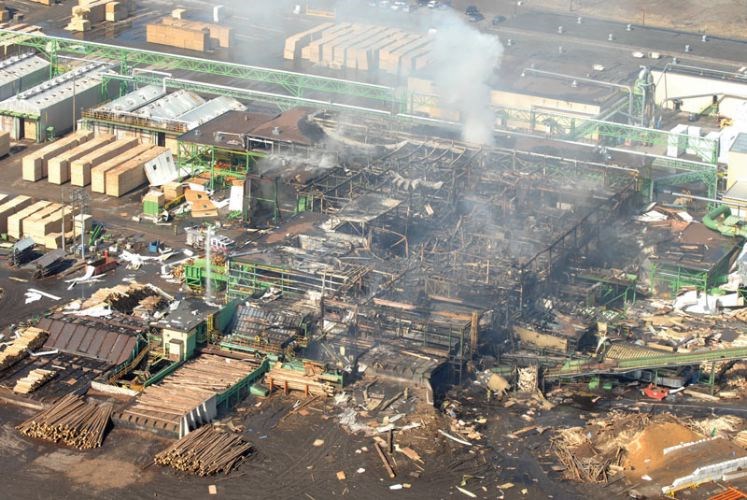A public inquiry into the explosions at the Babine Forest Products and Lakeland Mills sawmills two years ago would have the power to find fault, something a coroner's inquest does not possess, according to a legal opinion provided to the Opposition New Democrats.
In the opinion, lawyer David Crossin said a coroner's inquest is not designed to assign fault to those involved in the incident .
"Indeed, 'the jury must not make, and the coroner must not accept, any finding of legal responsibility or express any conclusion of law,'" Crossin said, citing the Coroners Act.
In contrast, he said a public inquiry commissioner has the "express power to make findings of misconduct against individuals."
Crossin did include the qualifier "subject to the terms of reference." And in a separate legal opinion, provided by Leonard Doust to the premier's deputy minister, John Dyble, he states that there is "very clear case law...confirming that a decision of crown counsel to approve or not approve charges is not a proper subject for review in a public inquiry."
But in an interview Monday, NDP leader Adrian Dix said an inquiry can still find fault, it just can't retry the cases.
"It's not a replacement," Dix said. "The government botched this process at a political and administrative level such that you can't try the cases, that's not the intention of a public inquiry. But yes, the public inquiry can review those very questions and find fault."
Crossin also said an inquiry could also "cover a much broader range of issues" than a coroner's inquest.
Although a jury in a coroner's inquest may make recommendations to prevent similar disasters in the future, "it is only expected to certify findings of fact respecting a narrow range of issues,"
Crossin said in the opinion.
In contrast, Crossin said a public inquiry commissioner would "consider a wider range of issues in a greater level of detail than would be permitted in a coroner's inquest."
Crossin provided the opinion in support of a terms of reference the NDP proposed earlier this year in its call for an inquiry into the Jan. 20, 2012 Babine explosion near Burns Lake, which killed two workers and injured 19 more.
Three months later, on April 23, 2012, a similar explosion occurred at Lakeland in Prince George, also killing two workers, while injuring another 22, and the NDP is again calling for a public inquiry.
In both instances, Crown counsel has decided not to pursue charges against the mills' owners and, in the process, criticized WorkSafeBC investigators for failing to follow proper procedure for a criminal investigation.
In its proposed terms of reference, the NDP suggests an inquiry could consider the policies and processes of WorkSafeBC and Crown counsel, as well as those of the B.C. Safety Authority and the RCMP.
The NDP also proposes an inquiry look at whether changes to the Criminal Code in response to the 1992 Westray mine disaster in Nova Scotia, are "effective in ensuring managers and employers are accountable for decisions that result in workplace death or injury."
The provincial government is planning to hold coroners inquests into the disasters and when pressed on the issue during question period in the legislature on Monday, labour minister and Prince George-Valemount MLA Shirley Bond maintained an inquest will have a "broad and inclusive scope."
She also said anyone who wants to become a participant in an inquest need only ask the coroner. "They don't require a lawyer to do that," Bond said.
Bond added the chief coroner "will ensure that families have the ability to ask the questions that they want and need answered."



